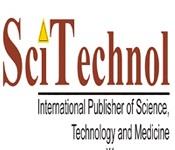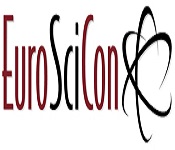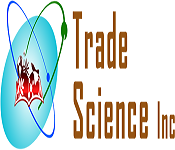Theme: Life Goes Faster on Protein
Protein Engineering 2018
Conference Series LLC Ltd. welcomes you to the 4th International Conference on Genetics and Protein Engineering in San Francisco, USA during September 18-19, 2019. It brings together world-class scientists, biologists, bioinformatics, genetics; academicians to discuss Protein Engineering related topics. "
Protein Engineering 2019 will be a global platform for sharing information and ability from both scientific and industrial group. The meeting goes for uniting the academicians, scientists, instructors, business pioneers, investors and young researchers to a global stage where they can showcase their novel research and contributions in the field of protein science and antibody engineering.
We are sure Protein Engineering 2019 will be an incredible open door for the global group to trade thoughts and add to a typical vision for future research and prompts collaboration among researchers taking an interest.
Our Conference will provide a perfect platform for addressing:
- Laudable talks by the top-notch of the global scientific community
- Sterling workshop sessions
- Remarkable Awards and Global Recognition to meritorious Researchers
- Global Networking with 50+ Countries
- Novel Techniques to Benefit Your Research
- Global Business and Networking Opportunities
- Exquisite Platform for showcasing your products and International Sponsorship
Conference Series LLC Ltd is organizing Protein Engineering in 2019 at San Francisco, USA. We organize Protein Engineering in the fields related to Enzymology, Epigenetics, Genetic Engineering, Antibody Engineering and Industrial Biochemistry and in Biology like Structural, Molecular, Cell, Plant and Animal.
Details about Protein Engineering Conference in 2019 in USA:
| Conference Name | Place | Date |
|---|---|---|
| Genetic and Protein Engineering Conference 2019 | San Francisco, USA | September 18-19, 2019 |
Conference Series LLC Ltd. gladly welcomes all the participants from all over the world to join the upcoming prestigious event “4th International Conference on Genetic and Protein Engineering" to be held during December 05-06, 2018 at Chicago, USA. The conference includes Keynote presentations, Oral/Poster presentations and Exhibitions.
Protein Engineering 2018 mainly emphasizes on dealing with the structure, operation and interactions among biological macromolecules.
Track 1: Protein Engineering
Protein Engineering is the process of creating helpful or profitable proteins and it research happens into the comprehension of collapsing and acknowledgment for protein plan standards. Analysts will have further point by point learning on In vitro development of proteins, Aspects of Biocatalysis, Advances in designing proteins for biocatalysis, Protein Engineered Biomaterials and many subjects. Computational Protein Engineering, Constructing practical biocatalysts and Growth of manufactured science are likewise normally utilized themes as a part of protein designing. The protein engineering business sector is estimated to develop at a CAGR of 15.7% to reach $1,463.0 million by 2020. There are very nearly 3000 individuals from 60-65 colleges in USA working for Protein Engineering and there are a few meetings & workshops like biomolecular designing gatherings, sub-atomic cell science workshops, protein engineering meetings, antibody engineering 2015 are conducting throughout the year globally.
Track 2: Protein Folding
Protein folding is the physical process by which a protein chain acquires its native 3-dimensional structure, a conformation that is usually biologically functional, in an expeditious and reproducible manner. From last few years, Researchers are keeping their effort in tackling the mystery of different mechanisms, driving forces, and processes occurring in protein folding.
Track 3: Protein Crystallography
Protein crystallography visualizes protein structures at the atomic level and helps in understanding the protein function with the help of very high-resolution microscopy. Protein Crystallography has been highly used in designing novel drugs that target a particular protein or an enzyme that can be used for industrial processes.
Track 4: Protein Purification
Recombinant protein production & purification, Protein expression and purification, CHI protein and Protein electrophoresis are the topics covered in the protein purification. Protein purification is a series of processes planned to isolate one or a few proteins from a complex mixture, usually cells, tissues or whole organisms. Protein purification is vital for the characterization of the function, structure and interactions of the protein of interest.
Track 5: Protein Engineered Biomaterials
The availability of growth factors and the increasing knowledge base concerning the bone regeneration with modern techniques like recombinant signaling molecules, solid free-form fabrication of scaffolds, synthetic cartilage, Electrochemical deposition, spinal fusion & ossification are newly generated techniques for tissue-engineering applications. Biomedical Engineering research is the foremost research which includes Nano applications to biomedical sciences and tissue engineering, Nano medicines, Cell interactions with Nano particles, Revolutionary opportunities and future possibility of nanotechnology, Bio-nanotechnology Biomedical Nanotechnology, Tissue Growing Nanostructures, Nano-Mechanisms for Molecular Systems, Nano-Bio-Computing, Biomedical Application of Nanoparticles and Functional Nanomaterials and Devices for Biomedical Engineering.
Track 6: Protein Therapeutics & Market Analysis
Protein Biomarkers, Protein gold standards, Recombinant protein drugs, , Protein expression services and market analysis, Fusion protein therapeutics are the various applications and sources for Protein Therapeutics and Market Analysis. Protein therapeutics already has a significant role in almost every field of medicine, but this role is still only in its infancy.
Track 7: Recombinant Protein Expression
Protein Expression contains of the stages after DNA has been transcribed to messenger RNA (mRNA) from the process of Optimizing protein expression, Prokaryotic and Eukaryotic systems, Fusion protein therapeutics: Cell line & cell culture development& Protein microarray studies. Recombinant production of proteins is one of the most powerful techniques used in the Life Sciences. There are nearly 3000 people from 60-65 universities in USA working for Protein Expression. The Oxford Protein Production Facility-UK (OPPF-UK) is a UK core facility for protein production located in the Research Complex at Harwell. The project has recently received additional funding of £2.3M from the MRC to provide a range of highly specialized technologies incorporating robotic systems, for the high throughput expression, purification & crystallization of recombinant proteins.
Track 8: Mass Spectrometry in Proteome Research
Proteomics is an developing field that has been highly enabled by the human genome project. Proteins are the products of genes, the machinery of the cells in our bodies. Protein mass spectrometry refers to the utilization of mass spectrometry to the study of proteins. Mass spectrometry is an important emerging method for the characterization of proteins. Two-dimensional gel electrophoresis can be used to generate cellular protein maps which give a quantitative and qualitative picture of the proteome. Mass spectrometry is the method of choice for the rapid large-scale identification of these proteomes and their alterations. Proteogenomics uses mass spectrometry data to experimentally validate gene products and to assist in the process of genome annotation & comparison.
Track 9: Molecular Modelling and Drug Designing
Molecular modelling is a technique for originating, representing and manipulating the structures and reactions of molecules, and those properties that are dependent on these three dimensional structure, Drug design, frequently referred to as rational drug design or simply rational design, is the inventive process of finding new medications based on the knowledge of a biological target.
Track 10: Genetic Engineering
Genetic engineering, also called genetic adjustment, is the immediate control of a living being's genome utilizing biotechnology. It is an arrangement of innovations used to change the genetic makeup of cells, comprising the exchange of genes within and across species boundaries to produce improved or novel organisms. Genetic adjustment, Genome investigation, Genetic designing strategies, Molecular docking & computational transformative science are the diverse points secured under Genetic Engineering.
Track 11: Applications of Genetic and Protein Engineering
There are lot of applications used for protein but mostly we are having good research and number of companies and projects for the following applications Protein modification, targeting and degradation, Protein identification & validation, Protein profiling studies in diabetes, Imaging mass spectrometry and profiling of tissue sections, Designer proteins and Protein Dietary Supplements. Protein Engineering market is $56 billion in 2012 to $168 billion in 2017, a compound annual growth rate (CAGR) of 10.9% from 2012 through 2017.
Track 12: Enzyme Engineering
Enzyme Engineering is the application of genetic engineering techniques to enzyme technology. There are a number of properties which may be improved or altered by genetic engineering including the production and kinetics of the enzyme, Structure of the enzymes, De novo design, Intersection of protein engineering and next-generation sequencing, Rational alteration of enzyme function, Combinatorial Enzyme Engineering & Enzyme and biosensor Engineering. There are almost 4000+ people from 75 universities in USA working for Enzyme Engineering.
Track 13: Antibody Engineering
Antibody engineering is a great tool for improving antibody functions and immunogenicity improvement. Engineered therapeutic antibodies are better for affinity maturation, specifically by improving on-rate of the antibody binding affinities. The need to overcome the immunogenicity problem of rodent antibodies in clinical practice has resulted in a plethora of strategies to isolate human antibodies. If human antibodies are to be used, then one would like to understand the basis by which different isotypes interact with host effector systems, and if possible, improve on nature by engineering in desirable modifications.
Track 14: Antibodies: Medical Applications
Antibodies are used extensively as diagnostic tools in many different formats. The term applied for antibody based diagnostic tests is “immunoassay”. Antibody-based immunoassays are the most commonly used confirmatory diagnostic assays and is the fastest growing technologies for the analysis of biomolecules. Trends in antibody based diagnosis show advances in assay specificity, detection technologies and sensitivity. Sensitivity and specificity is ensured depending on whether or not the antigen to be quantified competes with labeled antigen for a limited number of antibody binding sites. Monoclonal antibodies are now widely used in all areas of biological and medical research as well as in clinical diagnostic tests and in therapy. This review concentrates on the clinical use of antibodies in therapy particularly with regard to the properties of the antibodies which seem most relevant to their usefulness. In-vitro tests using human effector systems and in-vivo animal models have demonstrated the importance of the antibody isotype and valency for antigen as well as the specificity of binding.
Track 15: Antibody Drug Therapy
Conventional anticancer therapeutics often suffers from lack of specificity, resulting in toxicities to normal healthy tissues and poor therapeutic index. Antibody-drug conjugates (ADCs) constitute a therapeutic modality in which a cytotoxic agent is chemically linked to an antibody (Ab) that recognizes a tumor-associated antigen. The basic strategy underlying ADC technology is to combine the target selectivity of mAbs with the potency of cytotoxic agents, such as certain natural products and synthetic molecules, with the goal of generating therapeutic drugs that are highly efficacious but also safe. The ADC platform currently includes a growing repertoire of cytotoxic payloads, linker technologies and conjugation methods. Two ADCs have recently received FDA approval and more than 30 are in clinical development. This meeting aims to highlight advances in ADC research, clinical development and regulatory perspectives.
Track 16: Pharmacogenomics & Pharmacoproteomics
Pharmacogenomics & Pharmacoproteomics is the study of the use of genetics in drug response and provided DNA for genomes. It deals with the influence of acquired and inherited genetic variation on drug response in patients by Protein aggregation & stability in biopharmaceuticals, New discoveries in genomic targets, Various drug responses due to genetic polymorphisms, Drug dosage formulations, Drug safety and its efficiency and Membrane transport proteins. There are almost 3000 people from 60-65 universities in USA working for Proteomics. The NIH Pharmacogenomics Research Network (PGRN) is a network of scientists funding to PharmGKB since 2000.
Scope and Importance:
Protein engineering is the process of developing useful proteins with much research taking place into the understanding of protein folding and recognition for protein design principles.
Protein engineering has for decades been a powerful tool in biotechnology for generating vast numbers of useful enzymes for industrial applications. There will be challenging topics related to the protein dynamics in the field of protein engineering.
Why it’s in Chicago, USA
The study and research of the protein engineering is top in USA when compared to the Europe and Asia. Protein Engineering related companies and products are mostly found in USA. The well-developed technologies related to protein are used in universities in USA.
Societies Associated with Protein Engineering
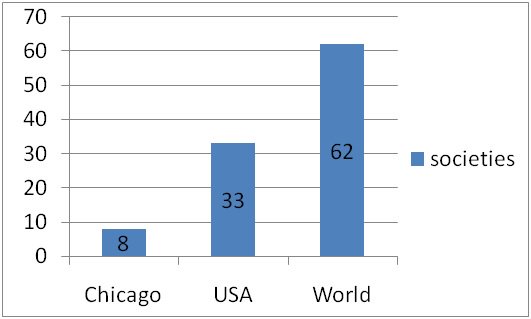
Chicago Major Protein Engineering Societies:
- Chicago Biomedical Consortium
- Academy of Nutrition and Dietetics
- Chicago dietetic association
USA Major Protein Engineering Societies
- American Society for Biochemistry and Molecular Biology
- American Society for Pharmacology and Experimental Therapeutics
- American Society for Investigative Pathology
- American Society for Nutrition
- The American Association of Immunologists
- American Association of Anatomists
- The Protein Society
- Society for Developmental Biology
- American Peptide Society
- Association of Biomolecular Resource Facilities
- The American Society for Bone and Mineral Research
- American Society for Clinical Investigation
- Society for the Study of Reproduction
- Teratology Society
- The Endocrine Society
- The American Society of Human Genetics
- Society for Gynecologic Investigation
- Environmental Mutagen Society
- International Society for Computational Biology
World Major Protein Engineering Societies
- The Antibody Society
- African Society for Bioinformatics and Computational Biology
- Biochemical society
- Royal Society of Chemistry
- International Federation for Cell Biology
Universities Associated with Protein Engineering
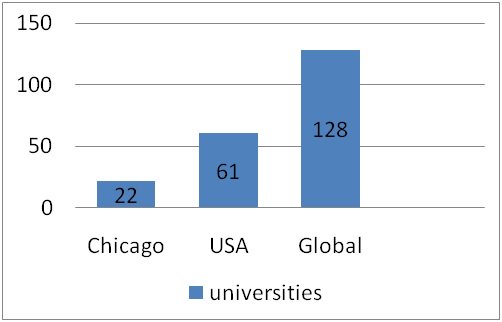
Top Universities in USA
- Stanford University
- Harvard University
- Princeton University
- Yale University
- Columbia University
Top Universities in Worldwide
- California Institute of Technology (Caltech)
- University of Oxford
- Stanford University
- Massachusetts Institute of Technology (MIT)
- Princeton University
- University of Cambridge
- University of California, Berkeley
Market Glance of Protein Engineering
The global protein engineering market is poised to reach $1,463.0 million by 2020 from $610.3 million in 2014, at a CAGR of 15.7% from 2015 to 2020. The protein engineering market is segmented on the basis of product, technology, protein type, end user, and region. By product, the protein engineering market is categorized into instruments, reagents, and services and software. The instruments segment accounted for the largest share 41.4% of the global protein engineering market in 2014. North America accounted for the largest share of the protein engineering market, followed by Europe. Both markets are estimated to register double-digit growth rates over the next five years.
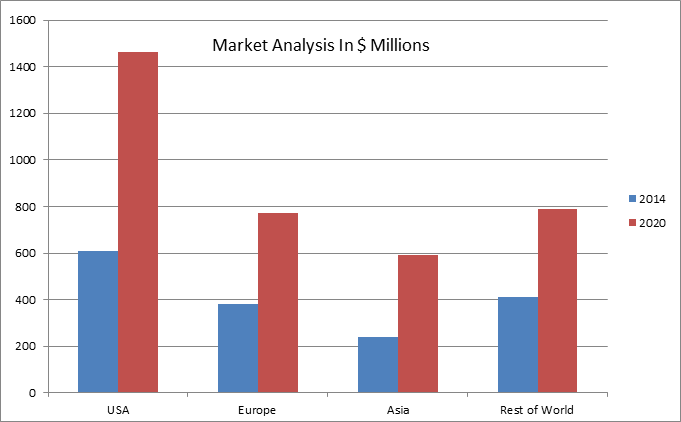
Products Manufactured by the Companies related Protein Engineering and its Market Value
|
Top Protein Engineering Companies in Atlanta, USA & World wide
|
Products Related to Protein Engineering
|
|
Life Technologies- USA, california |
Antibodies & Immunoassays, DNA & RNA - Purification, Quantitation & Detection, PCR, Sequencing, synthetic biology |
|
Origene- MD, USA and China |
cDNA clones, ELISA kits, ELISA antibodies |
|
Bio-Rad Laboratories- USA, California |
Amplification / PCR, Antibodies, Nucleic Acid Sample Preparation and purification, Protein Interaction Analysis |
|
Genencor- Canada |
Enzymes biotechnology, Formulations, Industrial Biotechnology, Biochemistry, Molecular Biology, Protein Engineering |
|
AB SCIEX- Spain |
Mass spectrometry and liquid chromatography, Pharmaceutical, drug discovery, proteomics, lipidomics and metabolomics, Food safety & environmental analysis. |
|
Biomax Informatics- USA |
BioXM Knowledge management Environment, BioRS Integration and Retrieval System, Pedant-Pro Sequence Analysis Suite
|
|
ProGenosis- Belgium |
Protein engineering & expression, Epitope mapping, Antigen development, Protein interaction
|
|
Genostar- France |
sequence assembly, mapping, annotation transfer and identification of protein domains, comparative genomics, structural searches, metabolic pathway analysis |
|
SimBioSys- canada |
eHITS software for molecular docking (flexible ligand docking & fast pre-docking), pharmacophore modelling, de novo design and retrosynthetic analysis software tools |
|
DNASTAR - USA |
DNA sequence assembly and analysis, including Sanger and sequence assembly and gene expression analysis |
Fund Allotment to Protein Engineering
Announcement of the Ministry of Economy and Competitiveness R & D
- They allotted 125.5 million euro's, aims to fund research projects of high quality experimental or theoretical orientation.
- As well, the announcement of R & D Oriented Challenges Company has 244 million, to which must be added a new category 20.5, R & D for young researchers without bonding or bonding time.
Conference Highlights
- Protein Engineering
- Protein Folding
- Protein Crystallography
- Protein Purification
- Protein Engineered Biomaterials
- Protein Therapeutics & Market Analysis
- Recombinant Protein Expression
- Mass Spectrometry in Proteome Research
- Molecular Modelling and Drug Designing
- Genetic Engineering
- Applications of Genetic and Protein Engineering
- Enzyme Engineering
- Antibody Engineering
- Antibodies: Medical Applications
- Antibody Drug Therapy
- Pharmacogenomics & Pharmacoproteomics
- Case Study
To share your views and research, please click here to register for the Conference.
To Collaborate Scientific Professionals around the World
| Conference Date | December 5-6, 2018 | ||
| Sponsors & Exhibitors |
|
||
| Speaker Opportunity Closed | |||
| Poster Opportunity Closed | Click Here to View | ||
Useful Links
Special Issues
All accepted abstracts will be published in respective Our International Journals.
- Journal of Proteomics & Bioinformatics
- Journal of Data Mining in Genomics & Proteomics
- Journal of Pharmacogenomics & Pharmacoproteomics
Abstracts will be provided with Digital Object Identifier by



